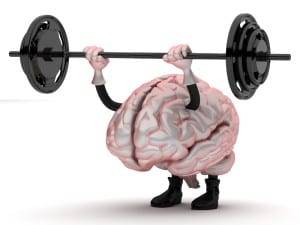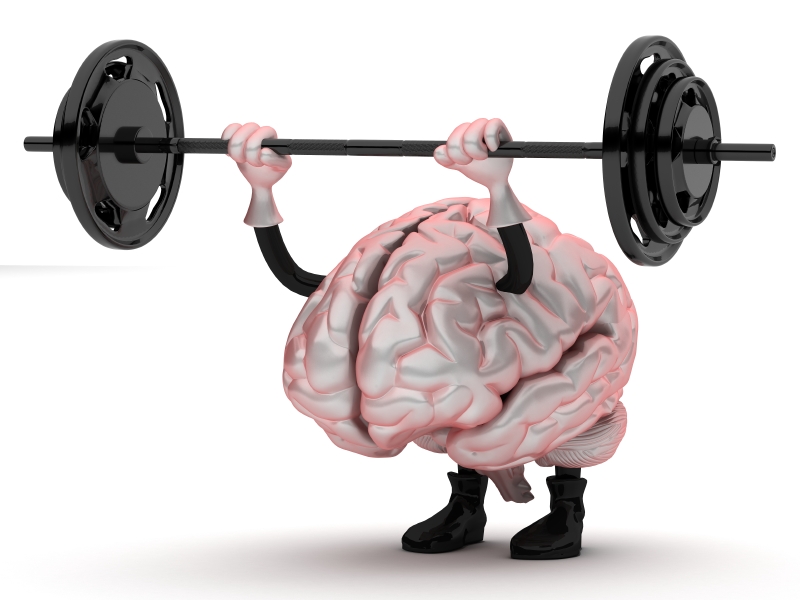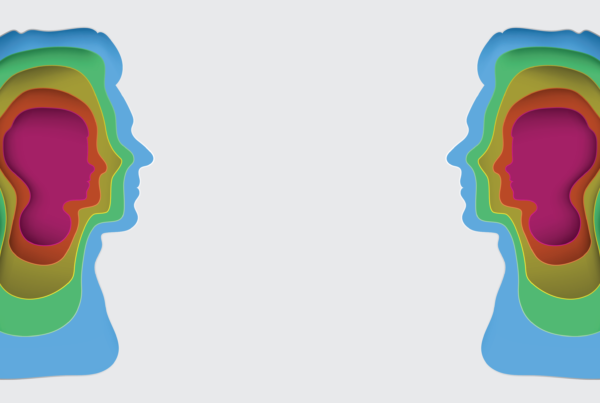Exercise for Mental Fitness

By Richard J. Loebl, LCSW, BCD
The ancient Greeks understood that a sound mind is inseparable from a sound body. Current medical research confirms this philosophy. As a devoted exercise enthusiast I can attest to the many physical, emotional and mental benefits of a regular fitness regimen. Depression, anxiety and worry runs in my family. I’ve struggled at times with these conditions, and there’s no doubt that my personal commitment to fitness has helped my mood states considerably. And my routine of gym workouts, jogging, and boxing is excellent for stress management!
In this article I’ll summarize the research results on the benefits of regular exercise – most notably the alleviation of depression, anxiety and worry, along with stress management. The last part of this article will outline specific exercise methods and strategies for mental and emotional well-being.
Exercise Benefits for Mental Fitness
* Improved Mood – Regular physical exercise results in improved mood states. Physical exercise signals the brain to release endorphins – hormones that activate opiate receptors which reduce pain, inflammation and stress. Studies show that exercise is generally as effective in reducing mild to moderate depression, anxiety and worry as antidepressant medications. Exercise is also shown to reduce the symptoms of a more serious major depression. Other studies show that anxiety disorders, including panic attacks and phobias are improved by regular physical exercise. James Blumenthal, Ph.D., a psychologist at Duke University conducted a comprehensive medical study reported in the journal Psychosomatic Medicine, 2007. “Exercise, he concluded, was generally comparable to antidepressants for patients with major depressive disorder.”
* Stress Reduction – As indicated above, endorphins are released during exercise. These hormones are highly effective in stress management. With the reduction of stress due to regular physical exercise, people also sleep better, and regulate their emotional states more effectively. With less depression, anxiety and worry, people are better able to manage stress in their lives.
* Self-Esteem – Research shows that physical exercise helps to improve self-esteem. Exercise improves self-confidence, and leads to feelings of personal empowerment. When we exercise we feel a sense of accomplishment and self-respect – another antidote to depression, anxiety and worry.
* Increased Brain Function – Recent medical studies indicate that regular physical exercise prevents cognitive decline. This means improved abilities to learn and to think more clearly and with improved focus and concentration. Exercise has been shown to reduce symptoms of ADD and ADHD, and to improve memory. There are indications that exercise also reduces obsessive rumination (commonly experienced with anxiety and worry). Stress management skills are enhanced with an improved problem solving abilities.
* Improved Behavior Management – People who exercise on a regular basis report increased motivation, energy, even creativity. They function at higher levels at work and at home. They also report an improved ability to manage angry feelings, with more behavioral control and emotional equanimity. Along with improved stress management skills, people are able to relax and find balance in their lives. Fitness programs are now very popular in rehabilitation programs for alcoholism and drug addiction – and for many good reasons. Since exercise tends to reduce the symptoms of depression, anxiety and worry, people experience fewer urges to self-medicate with drugs and alcohol.
* Trauma Recovery – Physical exercise is a highly effective therapy for trauma recovery. Trauma results from childhood physical or emotional abuse, neglect or abandonment. Adult trauma results from life threatening accidents and injury, witnessing serious trauma situations, injuries or death, and other tragedies. Trauma survivors, such as those with PTSD, can suffer with chronic depression, panic attacks, anxiety and worry. Along with other therapies, physical exercise has significant, proven benefits. Yoga, martial arts, and boxing are especially effective for trauma, as indicated in the next section.
* Social & Interpersonal Benefits – Many fitness programs and sports involve groups of people (such as exercise classes). Many studies have shown that social interaction with others is essential for good mental and emotional health – and essential for combatting depression, anxiety and worry. The combination of exercise and social interaction accomplishes two goals at one time – and it often makes exercise more fun.
Exercise Strategies for Mental Fitness
* Fitness Level – Almost everyone can exercise, regardless of their level of fitness. Those with physical limitations, or people who have never exercised on a regular basis, can easily start off slowly. Any exercise is better than none at all. And it’s easy to increase your activity level when you take it one step at a time. People who struggle with depression, anxiety and worry may need to push themselves – to push through the internal resistance to exercise. And getting support and encouragement from others can be motivating – it’s a comprehensive approach to stress management.
* Have Fun with Fitness – Running was never fun for me. Listening to music while I run makes it more enjoyable, as does running in new locations. Now I only run once a week, so I incorporate other types of workouts during the week. I discovered boxing a few years ago, and it’s great for stress management. Boxing is an excellent cardio alternative to jogging, biking, and swimming. It’s challenging, and it requires a high level of focus and concentration, while staying loose, flexible and balanced. Find something you like to do and it takes the “work” out of working out. And having fun while staying fit is a “no brainer” for combatting depression, anxiety and worry.
* Balance – Incorporate a variety of methods in your fitness program: walk, jog, bike, swim, and play sports. Resistance training with weights or other fitness systems is important for maintaining bone strength and musculature. Today there are many fun alternatives for a range of fitness activities: high-tech spinning boutiques, specialized gyms with great instructors and trainers, boot camps and various types of challenge courses. A fitness program that balances cardio with weight training and other methods is an excellent stress management strategy.
* Mindfulness, Yoga, and Martial Arts – Many research studies are now showing that mindfulness methods are highly effective in treating depression, anxiety and worry, and other emotional problems. Mindfulness – open awareness without judgment – is also an excellent stress management technique. When mindfulness is incorporated into a fitness program, the benefits are multiplied. Yoga is a prime example of a mindful fitness method – in fact, it is one of the original, ancient fitness programs! Yoga and Tai Chi are examples of a true mind-body path to physical, mental and emotional fitness. Martial arts, such as Aikido, Karate and Judo also use mindfulness practices along with physical training. Boxing is a more contemporary version of martial arts, and in boxing I’ve found an increased ability to focus, concentrate and lose self-consciousness in a mindfully aware manner – and it’s a great workout for stress management and anger management, with all of the physical benefits of a full body workout.
* Personal Trainers and Exercise Classes – I’ve used personal trainers at gyms for many years. The cost varies depending on the gym, but with the right trainer it’s worth it. An experienced trainer with the right kind of background can be highly motivating and will personalize the best workout for your needs. Exercise classes are a fun, low cost alternative, and many have trainers who can provide some one-on-one guidance during the class. Exercise classes are also a great way to get the social benefit from fitness – and to make new friends.
The professional counselors and therapists at the Relationship Center of South Florida have many years of experience helping people with depression, stress management, anxiety and worry. Contact us today with any questions, or to schedule an appointment.
My deep appreciation to Juan Carlos Santana, international fitness expert and founder of IHP (Institute of Human Performance); and Rio Santana, Gym Manager at IHP, in Boca Raton, FL – www.IHPfitness.com. I’ve been to dozens of gyms all over the U.S. and Europe, and IHP is the most professional training facility, with the most highly qualified and dedicated trainers I’ve ever experienced.







